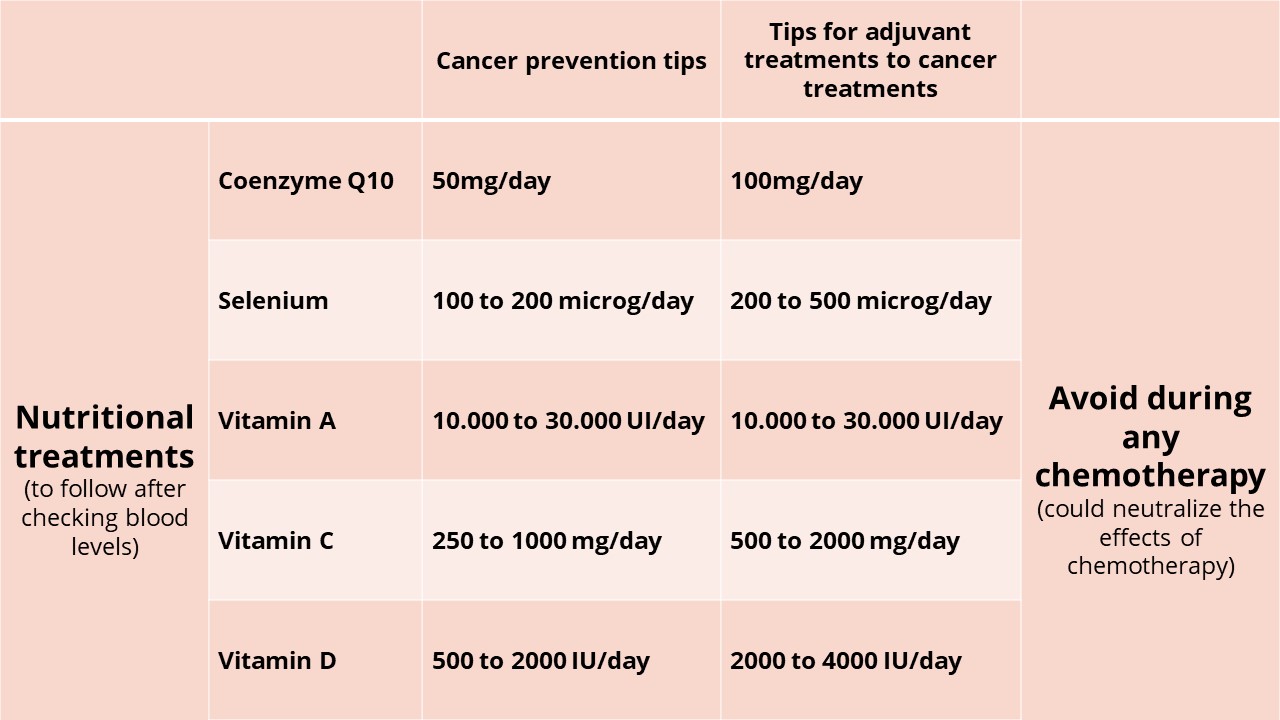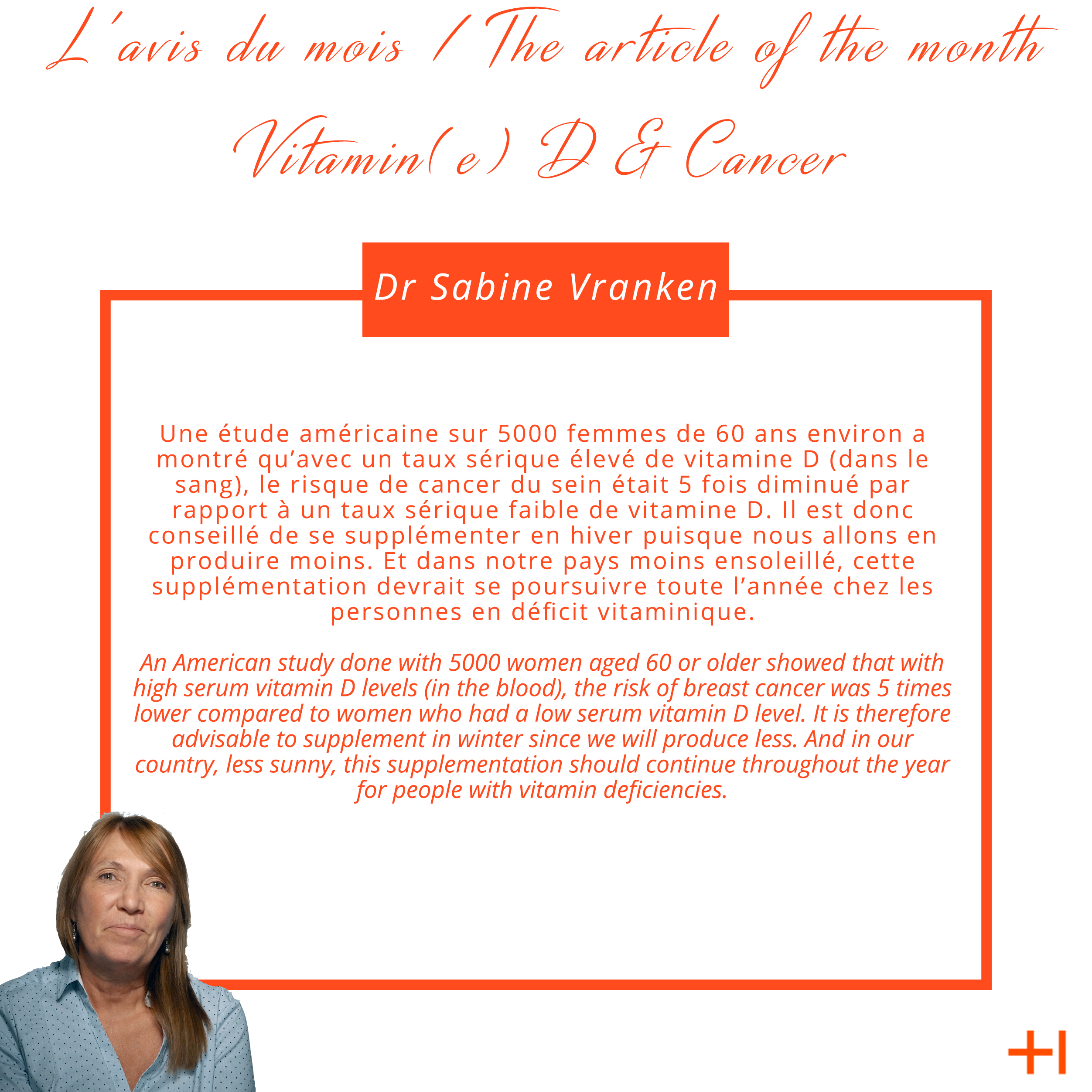World Cancer Day – Our Tips
Today we are celebrating World Cancer Day. Cancer is the second leading cause of death globally and is responsible for about 1 in 6 deaths (more or less 9.6 million deaths in 2018). It is important to adopt a preventive attitude towards the disease. Here are some easy tips to integrate into your daily life:
+ A regular intake of fresh fruits and vegetables is one of the most protective ways to prevent cancer. On average, a diet composed of at least 400 g of fruits and vegetables per day reduces the risk of cancer by about 20 to 30%.
+ Avoid cooking at high temperatures. Why? Because fats become toxic at high temperatures (any cooking above 85 ° Celsius). Food cooked in fat at a high temperature (between 170 and 250 ° C) increases the risk of breast cancer by up to two times, to a maximum of four.
+ Doing a regular physical activity (at least 30 minutes a day, 5 times a week) seems to significantly reduce the risk of colon and breast cancer. For breast cancer, sports may reduce the risk by 30% compared to inactive women (even more so in case of obesity).
+ Find serenity! The risk of cancer is 20 to 100% higher in anxious people. Some particularly negative feelings may be likely to promote the appearance of tumors: the feeling of helplessness over things, anxiety, loneliness, and guilt.
+ The main action of water in the prevention of cancer is to cleanse the body of all the carcinogens and pro-carcinogens that we absorb in our diet. Drinking enough water could reduce the risk of getting cancer by 20 to 90% (depending on the type of cancer). It goes without saying that it is best to avoid caffeinated drinks and alcohol because they are often associated with a greater risk of cancer.
+ Screening is a key element. An early diagnosis (before the appearance of symptoms) facilitates the treatment and limits the sequelae related to the treatments used. Screening can even prevent the development of cancer by identifying and treating an abnormality that may have progressed to cancer. In order to adapt your hormonal and nutritional treatment, I recommend to my patients to do genetic tests for breast and prostate cancer screening.
There is always a great chance of recovery if cancer is caught on time. With improved treatment and a preventive attitude, it would be possible to cure three out of four patients by 2030.
A little extra, find the list of nutrients to remember, which can support your metabolism and have anti-inflammatory virtues.
The opinion of our Doctors
Today, breast cancer must be considered as the consequence of a chronic biological imbalance or a persistent inflammation. The body has developed many mechanisms to fight external attacks (toxic, pesticides, overload and imbalance food) and internal (oxidation).
The persistence of these imbalances no longer allows the cells to repair themselves sufficiently during sleep and causes the first cell division abnormalities at the origin of the cancerous transformation.
Therefore, the best prevention of cancer is a healthy and organic diet, regular physical activity, the intake of nutritional supplements and a good hormonal balance.
A complete clinical and biological check-up is the best way to prescribe these preventive measures.
A chronic inflammatory system can be the cause of the development of cancerous pathology by generating cellular atypia and damages to the nuclear genetic material. A typical example being bronchial cancer and colon cancer. It is therefore essential to avoid any chronic inflammation of the body.
One of the first steps is to improve your diet by removing any toxic food: like burned fat, alcohol and tobacco. Ideally, you should follow the Paleolithic diet. Omega-3 also has an anti-inflammatory effect.
From a hormonal point of view, cortisol has an anti-inflammatory effect and even more synthetic corticosteroids such as prednisolone and methylprednisolone. A study realized with our patients in the clinic also showed a lower incidence of cancer than in the general population.
A growth hormone and IGF-1 deficiency can increase the risk of cancer. This may be the case for other hormones such as oxytocin, melatonin, thyroid, DHEA and sex hormones.
*Consult a Doctor before starting a treatment.





